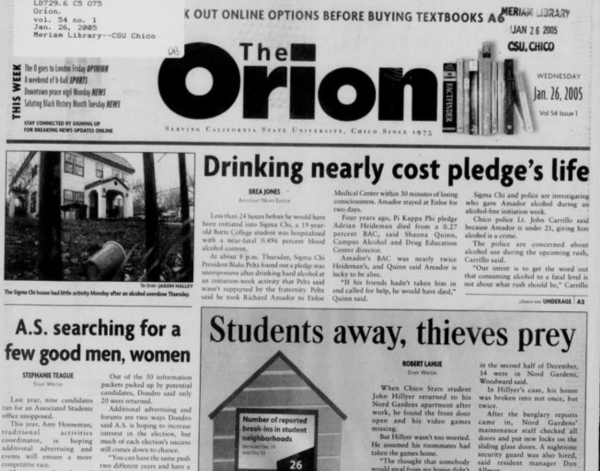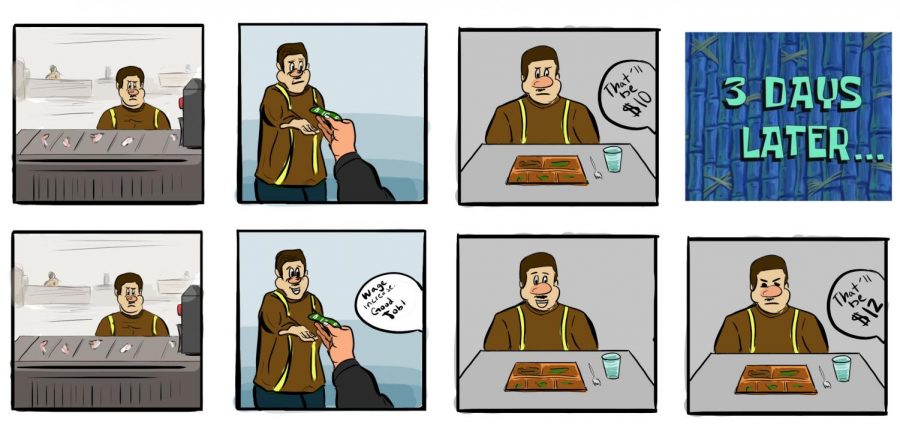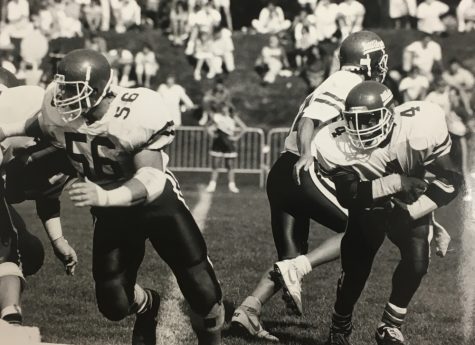Gender wage gap still exists, slowly diminishing
Money runs our society. We pay so much attention to money but rarely notice the flaws in our economic system. What really needs attention is who is affected in the end when the minimum wage gap falls short: Women.
Women represent nearly two-thirds of minimum wage workers across the country, three-quarters in some states. According to the National Women’s Law Center, they discovered 10 states with slim variations between men and women, seven of those were above federally mandated of $7.25 per hour. This means the typical full-time working women earned 80 cents for every dollar earned by her male counterpart.
One of the things President Obama did to assess the gap was sign the Lilly Ledbetter Fair Pay Act into law, that expanded the statute of limitations on lawsuits over equal pay. But yet, little was done to actually change the gap because the gap stands at 77 cents, the same place since the bill passed in 2009.
Although the gap has narrowed because of women’s progress in education, the workforce and men’s wages rising, it has not fully disappeared. According to the AAUW, at the rate of change between 1960 and 2016, women are expected to reach pay equality in 2059. However, will such a slow rate seen since 2001, women will not reach pay equality until 2119.
The gender gap continues and is worse for black and Hispanic women. Personally, I hate that this affects women. Just because we make up most of the workforce, shouldn’t mean we get paid less. In fact, I don’t understand why women are being so belittled when they’re choosing to work. It’s understandable in a particular job setting where work positions differ but when a man and a woman are taking on similar positions, why are we receiving a different wage.
As much as we want equal pay to happen now, it’s still a work in progress. To move forward, there are a few steps society can take to make the wage gap disappear.
One beneficial way to get started, is to find out if you’re receiving equal pay. According to the Institute for Women’s Policy Research, workers are either prohibited or discouraged from talking about how much they make with their colleagues.
Therefore, it should be easy if employers openly talked about their wages and we can start fighting for our own ‘six-figure’ salaries, too.
Karen Limones can be reached at [email protected] or @theorion_news on Twitter.





















Anon Chico State Student // Apr 6, 2018 at 3:29 pm
The wage gap was calculated using the median wages of Men and Women.
Median is inherently misleading. It takes ALL men and ALL women and finds the middle wage.
It does not take into a ton of variables:
The amount of women being stay at home mothers, the fact that women overwhelmingly choose jobs that are not in high paying fields (STEM, Business) but rather in social work and education, and the fact that women generally value jobs that have more flexible schedules (which don’t pay as much).
Bottomline, the reason men earn more on average is because they overwhelmingly choose higher paying fields and work more hours. Men also statistically negotiate more for higher salaries and raises. That’s why the median is so dramatic, don’t buy into this false victimhood narrative. The numbers do not support it.
The real barometer of a wage gap is to look at a man and a woman, with the same education and same relative experience, in the same industry with the same job. The studies prove the difference is negligible.
So yes, there is an earnings gap. But it is easily explained by a variety of variables, and women have the choice to earn more or less, based on the fields they decided to go into and the amount of hours they are willing to work.